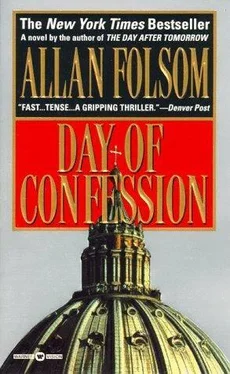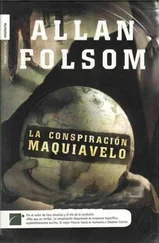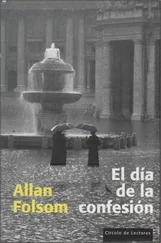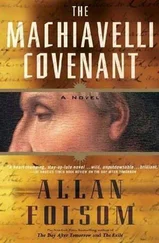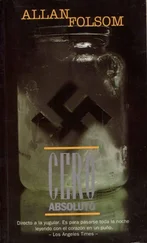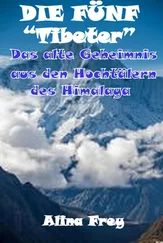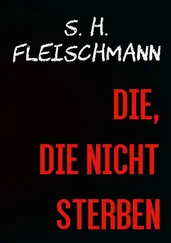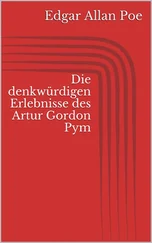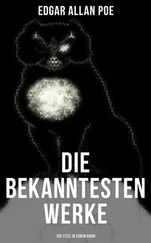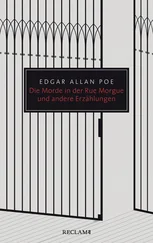For a moment Mooi and Roscani chatted, then the poet climbed back on his vehicle and led Roscani's car and two large trucks filled with armed carabinieri back down the driveway and onto the grounds of the villa proper. Thomas Kind was certain the police would find nothing. But he was equally certain that his target was somewhere there, or at a place close by. So he would wait and watch, and then make his move. Patience was everything.
Hefei, China. The Overseas Chinese Hotel.
Tuesday, July 14
Li Wen rolled over, restless. It was hot and still, and he was unable to sleep. Thirty seconds later he rolled over again and looked at the clock. It was twelve-thirty in the morning. In three hours he would have to get up. In four he would be at work. He lay back. This night, more than any, he needed to sleep, but it didn't come. He tried to erase thought from his mind, not think of what he was about to do, or what Hefei would be like twenty-four hours from now after he had introduced the deadly product of American hydrobiologist James Hawley's formula to the water supply at the treatment plant's clear-water outflow wells. Polycyclic unsaturated alcohol was not a monitored constituent in the water systems, nor could it be detected visually or by taste or odor in the drinking water. Introduced in frozen snowball-like form to melt in the already-treated water, the effect would be to cause severe digestive-system cramping, followed by intense diarrhea, and, ultimately, intestinal bleeding and death within six to twenty-four hours. The amount introduced, calculated at ten-parts-per-million concentration in a glass of drinking water, would have sufficient fatal contamination for one hundred thousand individuals.
Ten parts per million.
One hundred thousand deaths.
Li Wen tried to stop his mind from working, but he could not. Then, in the distance, he heard the crackle of thunder. At almost the same time he felt a breeze and saw the curtains billow slightly at the open window. A front was approaching, and with it would come wind and warm rain. By the time he got up, it should have passed, and tomorrow would be muggy and even hotter. Not-so-distant lightning Hashed, for an instant lighting up his hotel room. Eight seconds later there was a clap of thunder.
Li Wen moved up on an elbow, alert, his gaze crossing the room. In the corner next to his suitcase was a small refrigerator. Few hotels in China had room refrigerators, especially hotels in the smaller cities like Hefei, away from the major centers, but this one did. It was the reason he had chosen this hotel and asked for this room. Not only was there a refrigerator, but the appliance itself had a freezer, which was even more important because it was where he had frozen the polycyclic 'snowballs' after he had blended the formula. And where they would remain until he left for the treatment plant in something over three hours.
Again lightning flashed. For an instant the lights illuminating the hotel sign outside his window went out, then they came back on. Li Wen was wide awake now. Staring in the dark. The last thing he needed was to have the electricity go out.
Como, Italy. Still Monday, July 13. 7:00 p.m.
A troubled and anxious Roscani worked his way across a jammed, hastily set-up communications room deep inside Como's central carabinieri headquarters. A dozen uniformed officers manned phone banks set on desks in the middle of the room, while as many others hacked at computer terminals plopped down haphazardly, wherever they could fit into the too-small quarters. Others still – anxious, smoking, drinking coffee – moved in between. It was a war room set up in hours to coordinate an all-out manhunt after a search of Villa Lorenzi turned up no sign of the fugitive priest.
Roscani's destination was an enormous map of the Lake Como area that covered one entire wall. On it, pinpointed with small Italian flags, were the locations of roadway checkpoints where heavily armed Gruppo Cardinale personnel were stopping and searching every vehicle passing through – a major undertaking, considering the variety of terrain and the number of roads that could be used as escape routes.
Bellagio was at the northern tip of a landmass triangle that jutted northward into the lake. The lake itself extended farther north, while at the same time spilling, in long fingers, down either side of the triangle to Lecco on the southeast and Como on the southwest, with Chiasso and the Swiss border just inland and northwest of it.
Because of its location, Chiasso was the most obvious exit point and was heavily manned, but there were other places still within Italy where the fugitives might hole up and hide to wait out a search. The towns of Menaggio, Tremezzo, and Lenno across the lake to the west. Bellano, Gittana, and Varenna to the east. And then those, like Vassena and Maisano, within the triangle and still others to the west.
It was a massive and intense operation that disrupted almost every household and business in the region; a condition exacerbated by an all-out invasion of the media. They were betting that the alleged assassin of the cardinal vicar of Rome was on the brink of capture and were broadcasting it live to the world.
Roscani was hardly new to large operations, and the disruptive circus atmosphere was part of it. But no matter how well things were organized, their very size made them cumbersome. Things rushed at you, decisions had to be made quickly and by any number of people. Mistakes were inevitable. Under fire you didn't have the assoluta tranquillita to be quiet and think things through properly, try to find the logic and approach that could make the difference between success and failure.
A sudden noise at the back of the room made Roscani look up. For an instant he saw a gaggle of media people in the hallway outside shouting questions as Scala and Castelletti came in with the captain and two members of the hydrofoil that had allegedly ferried Father Daniel and his medical entourage to Bellagio and Villa Lorenzi.
Roscani followed them across the room and into an alcove where a carabiniere pulled a sliding curtain to give them privacy.
'I am Ispettore Capo Otello Roscani. I apologize for the disorder.'
The hydrofoil captain smiled and nodded. He was probably forty-five and looked fit. He wore a dark blue double-breasted naval jacket over the same color trousers. His crewmen wore light blue short-sleeved shirts with epaulettes on the shoulders and the same dark blue pants.
'Would you like coffee?' Roscani asked, at their obvious nervousness. 'A cig-' Roscani caught himself, then grinned. 'I was going to offer you a cigarette, but I have just quit smoking. In all this bedlam, I'm afraid that if I let you smoke, I might give in and join you.'
Roscani smiled again and he could see the men relax. It was a calculated gesture on his part, designed for the effect it had, yet he wasn't so sure it wasn't the truth. Still, his admission had put the men at ease, and over the next twenty minutes he learned the particulars of the voyage from Como to Bellagio and was given detailed descriptions of the three men and the woman who had accompanied the man on the gurney. He also learned one other singular piece of information. The hydrofoil had been hired the day before the trip. It had been done through a travel agency in Milan at the behest of a Giovanni Scarso, a man claiming to represent the family of a man badly injured in an automobile accident who wanted him transported to Bellagio. Scarso had paid cash and left. It was only when they had approached Bellagio that one of the men accompanying the sick man had directed them away from the main landing and farther south, to the dock at Villa Lorenzi.
Читать дальше
